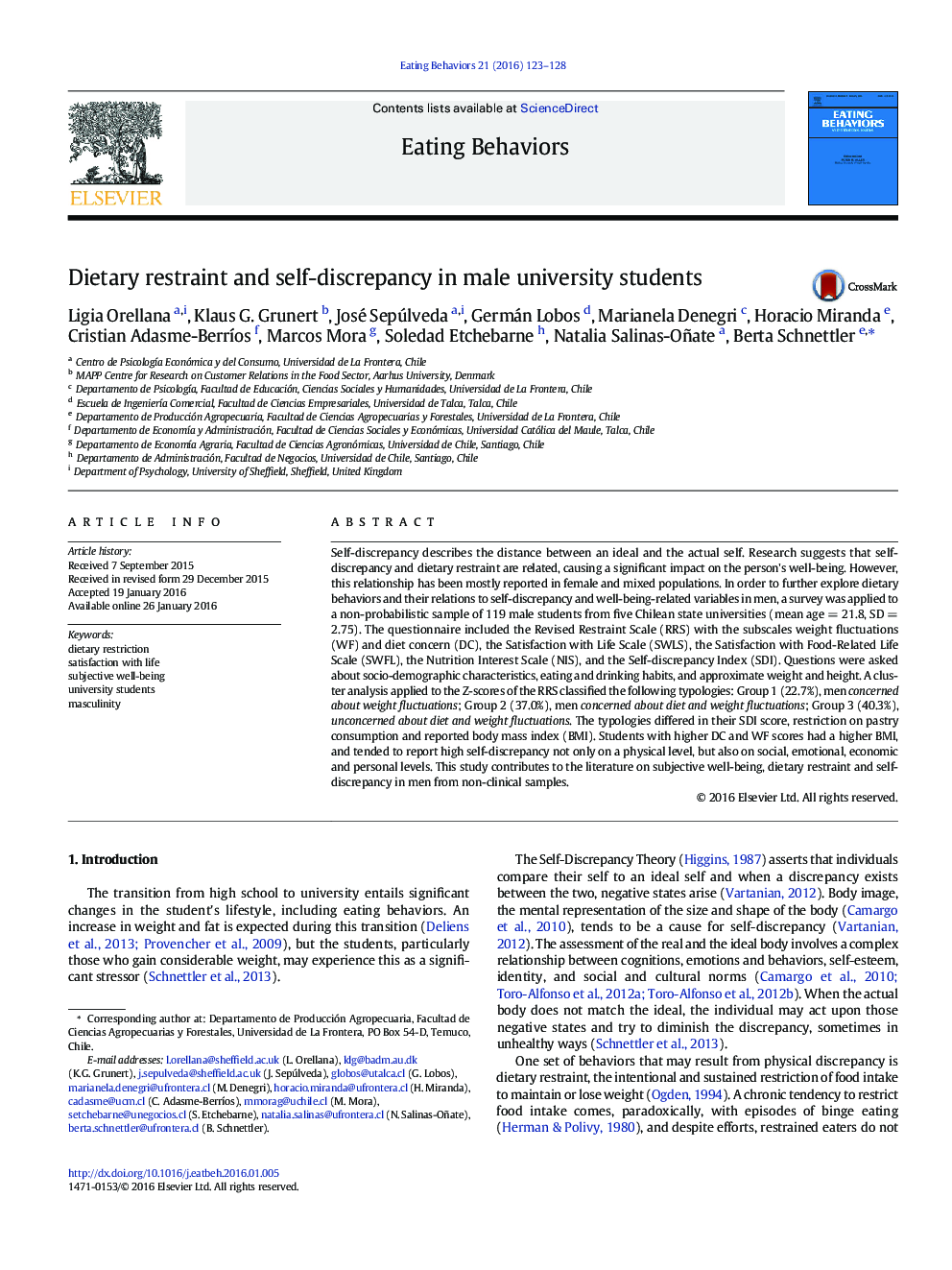| کد مقاله | کد نشریه | سال انتشار | مقاله انگلیسی | نسخه تمام متن |
|---|---|---|---|---|
| 906242 | 1472882 | 2016 | 6 صفحه PDF | دانلود رایگان |
• Dietary behaviors and their relations to self-discrepancy and well-being-related variables were studied in male university students.
• There were three typologies of male university students distinguished, based on dietary restraint, self-discrepancy on different levels and nutrition interest.
• Students with concern over weight, or diet and weight, reported higher self-discrepancy not only on a physical level, but also on social, emotional and personal levels.
Self-discrepancy describes the distance between an ideal and the actual self. Research suggests that self-discrepancy and dietary restraint are related, causing a significant impact on the person's well-being. However, this relationship has been mostly reported in female and mixed populations. In order to further explore dietary behaviors and their relations to self-discrepancy and well-being-related variables in men, a survey was applied to a non-probabilistic sample of 119 male students from five Chilean state universities (mean age = 21.8, SD = 2.75). The questionnaire included the Revised Restraint Scale (RRS) with the subscales weight fluctuations (WF) and diet concern (DC), the Satisfaction with Life Scale (SWLS), the Satisfaction with Food-Related Life Scale (SWFL), the Nutrition Interest Scale (NIS), and the Self-discrepancy Index (SDI). Questions were asked about socio-demographic characteristics, eating and drinking habits, and approximate weight and height. A cluster analysis applied to the Z-scores of the RRS classified the following typologies: Group 1 (22.7%), men concerned about weight fluctuations; Group 2 (37.0%), men concerned about diet and weight fluctuations; Group 3 (40.3%), unconcerned about diet and weight fluctuations. The typologies differed in their SDI score, restriction on pastry consumption and reported body mass index (BMI). Students with higher DC and WF scores had a higher BMI, and tended to report high self-discrepancy not only on a physical level, but also on social, emotional, economic and personal levels. This study contributes to the literature on subjective well-being, dietary restraint and self-discrepancy in men from non-clinical samples.
Journal: Eating Behaviors - Volume 21, April 2016, Pages 123–128
